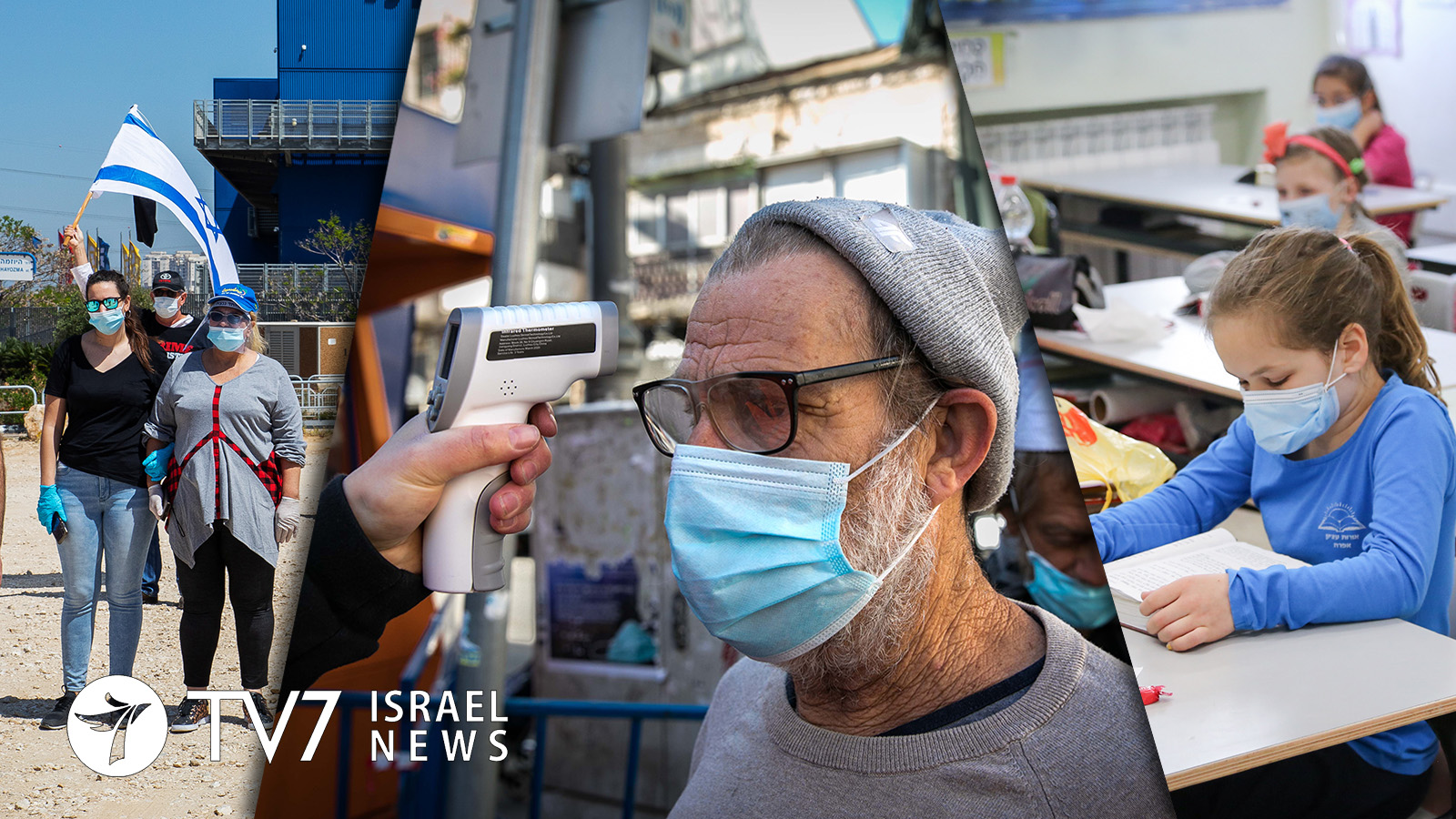The interim Israeli government, under the leadership of Prime Minister Benjamin Netanyahu, announced a series of newly adopted amendments to the previously imposed emergency regulations with the goal of further alleviating coronavirus restrictions.
Among others, Israelis are now permitted to visit public parks and gardens. Furthermore, individuals returning from abroad, who can prove their ability to “fully and properly self-quarantined”, shall be permitted to do so – instead of spending the required two-week isolation at state-designated hotels. Thus, the Israeli government instructed the police to step-up enforcement vis-à-vis individuals that are required to remain is self-quarantine, after returning from abroad. Israeli Police Spokesman Superintendent Micky Rosenfeld told TV7 that “The Israeli national police are continuing activities on the ground in order to make sure that the new laws and regulations about people coming back from overseas will be implemented. Coordination is being made by the different data systems at the border police control, police units on the ground, and activities will continue as long as necessary to keep Israel safe and prevent any spread of the coronavirus across the country.”
Since TV7’s last reported corona-related figures – which were published on Friday, May eighth – the Israeli Health Ministry has confirmed an additional 83 newly sick individuals, raising the total number of verified carriers of the virus to 16,492, 73 of whom are in critical condition and 64 are in need of ventilator support. The disease has claimed the lives of an additional 9 individuals, raising the total number of Israeli corona-related victims to 254. The Israeli health authorities have corroborated that another 541 individuals have fully healed, raising the total number of Israelis cured to 11,548.
It is important to mention that while the published figures seemingly indicate a significant decline in the upward trend of newly diagnosed coronavirus cases these numbers are based on partial data. Health Authorities confirmed to TV7 that in the past three days there has been a sharp decline in the number of tests conducted in Israel, averaging a mere 2,843 in total, marking a significant drop of 165 percent, compared to the same period a week prior.
Nevertheless, some Israeli leaders apparently believe that a second outbreak of the coronavirus will not occur before the winter. Speaking from the country’s national control-center at Tel Ha-Shomer Hospital, from which Israel combats the corona contagion’s spread; Israeli Defense Minister Naftali Bennett underlined his expectations saying “We have opened up the economy significantly. I expect some increase but not a spike, I do not think we will see a leap and loss of control over the virus (spread). Also, because people have behaved and learned to behave well with the masks and so on, and the climate is now warmer. Overall, the situation seems reasonable.”
The top Israeli defense official further stressed that extensive efforts are being made to prepare the Jewish State ahead of the next fall, before winter, in order to avoid another economic shut-down. “What are we worried about? We are worried about another wave that may come in the winter, it may or may not occur. It may come in the winter with a mutation, a virus mutation change, or a connection with the flu, which we also do not know (if it will happen). And so, what we are doing at a government level is preparing ourselves for the next four, five, six months before the fall before winter so that this time we will be prepared and will not have to shut down the Israeli economy to maintain health. I mean, now we must use the time so that if there is another outbreak we can reduce the harm to the economy and livelihood of Israeli citizens.”
Meanwhile, in efforts to revive the economy, Israel partially reopened nurseries and kindergartens yesterday after almost two whole months, for the purpose of enabling parents to return to work. According to Israeli mother of Kindergarten Children Tamar Stampfer, “Today, bringing the kids back to kindergarten is actually exciting, a different relief than I thought because we got used to each other and being together. So it’s with happiness that we bring them back because they need to be in this framework and to see friends and to learn and we have to get back to work.” Another mother named Yael Noiman expressed the opinion that “It was very exciting to get back to Gan (Hebrew for kindergarten), to normal.. actually, it’s not so normal but it’s the beginning of.. we waited for it for a very long time, right? We had a great time at home but he missed his friends and his teacher and it’s very exciting to get back.”
Observing the health regulations is obviously far-more challenging for preschoolers than the older-age school groups, and thus kindergarten teachers are required to assure an enhanced hygienic environment. According to kindergarten teacher Racheli Greenberg, “We are making an effort… each of them knows when to go wash their hands, at the start of the day we also explained to them how to wash their hands.”
